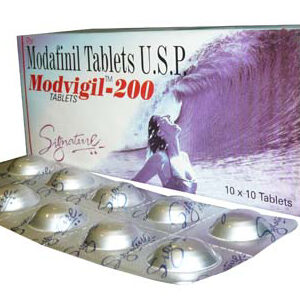Ritalin 10Mg
$60 – $250
Introduction to Ritalin Ritalin, also known by its generic name methylphenidate, is a central nervous system stimulant primarily used to treat attention deficit hyperactivity disorder (ADHD) and narco
Introduction to Ritalin
Ritalin, also known by its generic name methylphenidate, is a central nervous system stimulant primarily used to treat attention deficit hyperactivity disorder (ADHD) and narcolepsy. It belongs to a class of medications called psychostimulants and is one of the most commonly prescribed drugs for ADHD management. This comprehensive guide will delve into the various aspects of Ritalin, including its mechanism of action, therapeutic uses, potential side effects, and precautions.
Mechanism of Action
Ritalin works by increasing the levels of certain neurotransmitters in the brain, specifically dopamine and norepinephrine. These neurotransmitters play crucial roles in regulating attention, focus, and impulse control. By enhancing their availability in the brain, Ritalin helps improve ADHD symptoms such as inattention, hyperactivity, and impulsivity. It achieves this effect by blocking the reuptake of dopamine and norepinephrine, thereby prolonging their actions in the synaptic clefts between neurons.
Therapeutic Uses
- ADHD Management: Ritalin is widely prescribed as a first-line treatment for ADHD in children, adolescents, and adults. It helps reduce symptoms such as distractibility, disorganization, and fidgeting, allowing individuals to better focus on tasks and activities.
- Narcolepsy Treatment: In addition to ADHD, Ritalin is also used to manage narcolepsy, a neurological disorder characterized by excessive daytime sleepiness and sudden episodes of sleep.
- Off-Label Uses: Some healthcare providers may prescribe Ritalin off-label for conditions such as depression, fatigue associated with multiple sclerosis, and cognitive enhancement in certain populations.
Dosage and Administration
The dosage of Ritalin varies depending on the age, weight, and individual response of the patient. It is typically taken orally in the form of tablets or capsules and is available in immediate-release (IR) and extended-release (ER) formulations. The IR formulation is usually taken 2-3 times daily, while the ER formulation is taken once daily in the morning to provide sustained symptom relief throughout the day.
It’s crucial to follow the prescribing healthcare provider’s instructions regarding dosage and administration to ensure optimal therapeutic effects and minimize the risk of adverse reactions.
Potential Side Effects
Like any medication, Ritalin can cause side effects, although not everyone experiences them. Common side effects may include:
- Insomnia: Difficulty falling or staying asleep is a common side effect of stimulant medications like Ritalin. Taking the last dose earlier in the day or adjusting the dosage may help mitigate this issue.
- Appetite Suppression: Some individuals may experience a decrease in appetite while taking Ritalin. This side effect is usually temporary and may improve over time.
- Headache: Headaches are among the common side effects reported with Ritalin use. Staying hydrated and practicing relaxation techniques can help alleviate this symptom.
- Nervousness or Irritability: Stimulants can sometimes cause feelings of nervousness, restlessness, or irritability. These effects are typically mild and may diminish with continued use.
- Gastrointestinal Disturbances: Ritalin may occasionally cause stomach upset, nausea, or abdominal pain. Taking the medication with food or adjusting the dosage timing can help reduce these gastrointestinal side effects.
- Increased Heart Rate or Blood Pressure: Stimulant medications like Ritalin can elevate heart rate and blood pressure in some individuals. Regular monitoring by a healthcare provider is essential to ensure safety, especially in patients with pre-existing cardiovascular conditions.
Precautions and Warnings
Before starting Ritalin treatment, patients should inform their healthcare provider about any existing medical conditions, medications, or supplements they are taking. Ritalin is contraindicated in individuals with a history of hypersensitivity to methylphenidate or related compounds, as well as those with certain cardiovascular conditions, severe anxiety, or agitation.
Special precautions should be taken when prescribing Ritalin to children, adolescents, or individuals with a history of substance abuse. Healthcare providers should monitor patients closely for any signs of misuse, dependence, or adverse reactions.
Conclusion
In conclusion, Ritalin is a valuable medication for managing ADHD and narcolepsy symptoms, with a well-established mechanism of action and therapeutic benefits. While it can cause side effects in some individuals, proper dosage adjustment and monitoring can help minimize these effects and ensure safe and effective treatment. As with any medication, it’s essential to follow healthcare provider recommendations and guidelines for optimal outcomes.
| Pillen | 30, 60, 90, 180 |
|---|




There are no reviews yet.